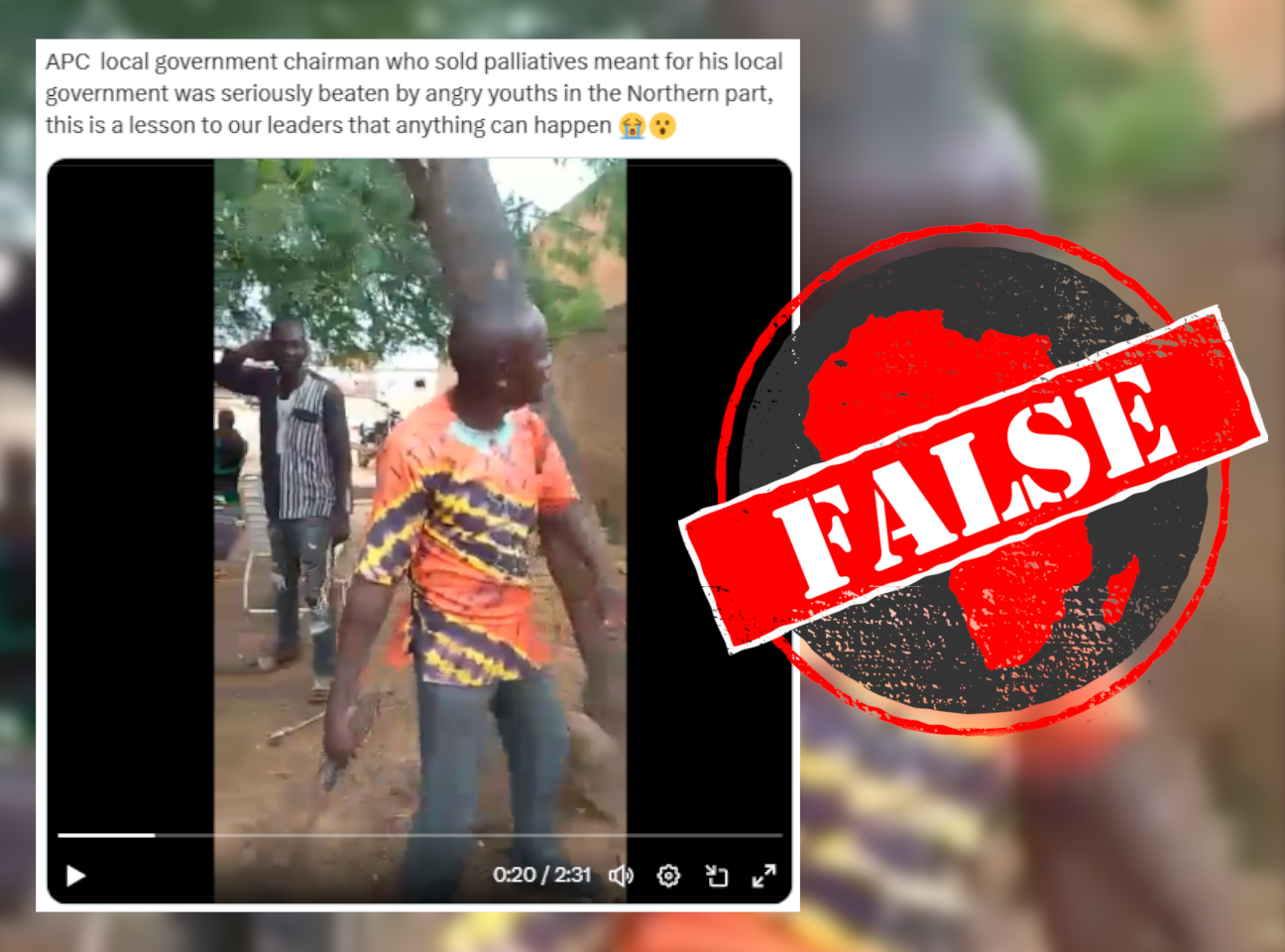IN SHORT: Several social media users have posted a video of a man being whipped while tied to a tree, claiming it shows a Nigerian local government official being beaten up by angry community members. But the video is at least a year old, and has been posted widely with different explanations of what is going on.
A video posted on X, the social media platform formerly known as Twitter, shows a shirtless man tied to a tree while others beat him. Users claim he is an All Progressives Congress (APC) local government chairperson who sold food meant for his community in the northern part of Nigeria.
The post, dated 2 April 2024, has been viewed over 1.3 million times. It reads: “APC local government chairman who sold palliatives meant for his local government was seriously beaten by angry youths in the Northern part, this is a lesson to our leaders that anything can happen.”
In Nigeria, “palliative” is often used to refer to aid, including food, provided by the government to alleviate poverty. The term gained popularity during the Covid-19 pandemic, when relief supplies were hoarded by some government officials.
Nigerians have been hit by rising inflation and have made their anger known in various protests across the country since the start of 2024. In response, president Bola Tinubu ordered the release of 42,000 tonnes of grain in February.
The same video and claim can be found on Facebook here, here and here, and on Instagram here, here and here.
But does the video show an APC local government chair being beaten up? We checked.

Video shows different event
There are a few indications that the video is incorrectly captioned. The first is that if an APC leader had been beaten up by the community, it would've made headlines. But we found no news report from credible media sources about the incident.
The second indication is that it lacks details. It doesn't name the APC member or the town or county where the incident took place.
The third clue is that the video has been online for at least a year, according to the video verification tool Invid.
It was posted on X on 26 April 2023, with the claim that the shirtless man “enjoys beating his wife at any given opportunity”. The posts also said that he was being beaten by his wife’s brothers.
In November, the video resurfaced with a different story. One post claimed that the man tied to the tree was a chief in Ghana who had been beaten by his subjects for diverting funds meant for the construction of wells.
The last indicator that the video is being shared out of context is that the APC, the party of president Tinubu, has not confirmed it or made any mention of it on its social media accounts.
The video is old and does not show an “APC local government chairperson” being beaten in the northern part of Nigeria.
Republish our content for free
For publishers: what to do if your post is rated false
A fact-checker has rated your Facebook or Instagram post as “false”, “altered”, “partly false” or “missing context”. This could have serious consequences. What do you do?
Click on our guide for the steps you should follow.
Publishers guideAfrica Check teams up with Facebook
Africa Check is a partner in Meta's third-party fact-checking programme to help stop the spread of false information on social media.
The content we rate as “false” will be downgraded on Facebook and Instagram. This means fewer people will see it.
You can also help identify false information on Facebook. This guide explains how.


Add new comment